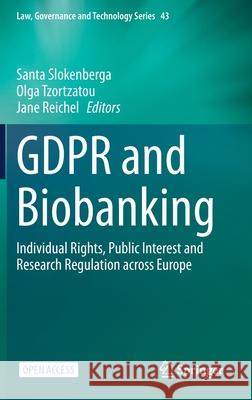Gdpr and Biobanking: Individual Rights, Public Interest and Research Regulation Across Europe » książka
topmenu
Gdpr and Biobanking: Individual Rights, Public Interest and Research Regulation Across Europe
ISBN-13: 9783030493875 / Angielski / Twarda / 2021 / 434 str.
Kategorie:
Kategorie BISAC:
Wydawca:
Springer
Seria wydawnicza:
Język:
Angielski
ISBN-13:
9783030493875
Rok wydania:
2021
Wydanie:
2021
Numer serii:
000411450
Ilość stron:
434
Waga:
0.79 kg
Wymiary:
23.39 x 15.6 x 2.54
Oprawa:
Twarda
Wolumenów:
01
Dodatkowe informacje:
Wydanie ilustrowane











